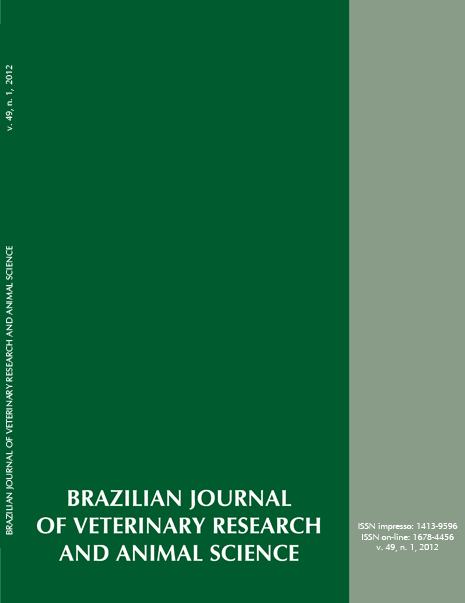Effect of probiotic on the development of piglets challenged with Escherichia coli
DOI:
https://doi.org/10.11606/issn.2318-3659.v49i1p57-66Keywords:
Swine, Performance, Diarrhea, Faecal E. coli quantificationAbstract
We used 72 piglets at 21 days old and the aim was to determine the effect of probiotics on performance of piglets challenged with E. coli. The design was a randomized block design with 2x2 factorial arrangement. The four treatments were: with probiotic and challenge, with probiotic without challenge, without probiotic with challenge, without probiotic and challenge. The probiotic was administered via Protexin ™ diet, from 21 to 63 days old and 35 days, the animals in treatments 1 and 3 were challenged. The variables were: average weight at 35, 49 and 63 days old, daily weight gain from 35 to 49 days, 49 to 63 days, from 35 to 63 days and fecal score. The variables average weight, daily weight gain and diarrhea score were subjected to analysis of variance by PROC GLM. In terms of weight and weight gain was found beneficial effect of probiotic when these characteristics were associated with the occurrence of diarrhea post-challenge and the reduction of E. coli. It was concluded that the probiotic used in the experimental model showed clear effect on the reductions of E. coli and diarrhea, are relatively influenced in the performance of piglets.
Downloads
Downloads
Published
Issue
Section
License
The journal content is authorized under the Creative Commons BY-NC-SA license (summary of the license: https://





